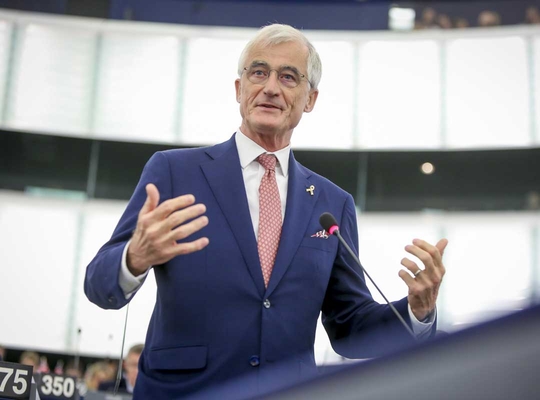You are here
Geert Bourgeois: “Continuing concerns about restrictions on free speech in the Digital Services Act”

The European Parliament is voting on the Digital Markets Act and the Digital Services Act, which, among other things, will curb the omnipotence of the tech giants. This is a positive step, although one of the proposals threatens to put pressure on freedom of expression. The N-VA voted in favour of the Digital Markets Act (DMA), but abstained from the vote on the Digital Services Act (DSA) for the reason mentioned above.
The Digital Markets Act
MEP Geert Bourgeois is unquestionably positive about the DMA: “This is a good thing, as it provides much-needed fair competition and growth opportunities for our young companies.”
For example, the DMA makes a more proactive approach possible, says Bourgeois: “The current competition rules turned out to be insufficient. They only have an effect later on, on a case-by-case basis, and are also very time-consuming and resource-intensive. Thanks to the DMA, we can now prevent instead of cure.”
The Digital Services Act
The DSA is also a step forward because it ensures uniform rules in the internal market and better protection for users of digital platforms. “But despite some adjustments, it is still my great concern that powerful private players will curb free speech,” Bourgeois warns.
The “notice and action” system will lead private platforms to excessively delete messages for fear of liability. It is thus to be feared that satire, humour, parody, critical voices and legitimate political opinions will not get through all the algorithms. It has already been established that algorithms are not sensitive to nuance.
List of offences listed exhaustively
“Free speech is not absolute, of course, but to avoid censorship, I would prefer to advocate a list of some offences listed exhaustively for which the major social platforms can and must remove content at their discretion. Taking action against alleged illegal content is a matter for the courts in a state governed by the rule of law,” Geert Bourgeois says.
Finally, Bourgeois considers it a missed opportunity that the example of our country, where censorship is prohibited both offline and online by the Constitution, was not taken as a guiding principle in this European proposal. “The same EU that nevertheless prides itself on protecting our rights and freedoms.”

